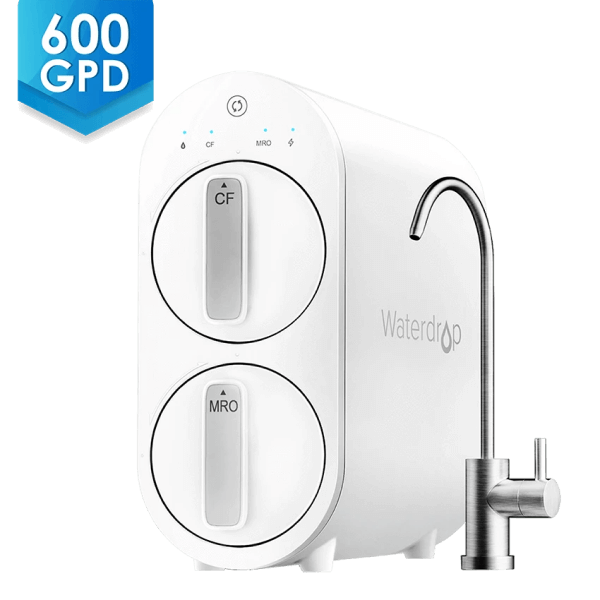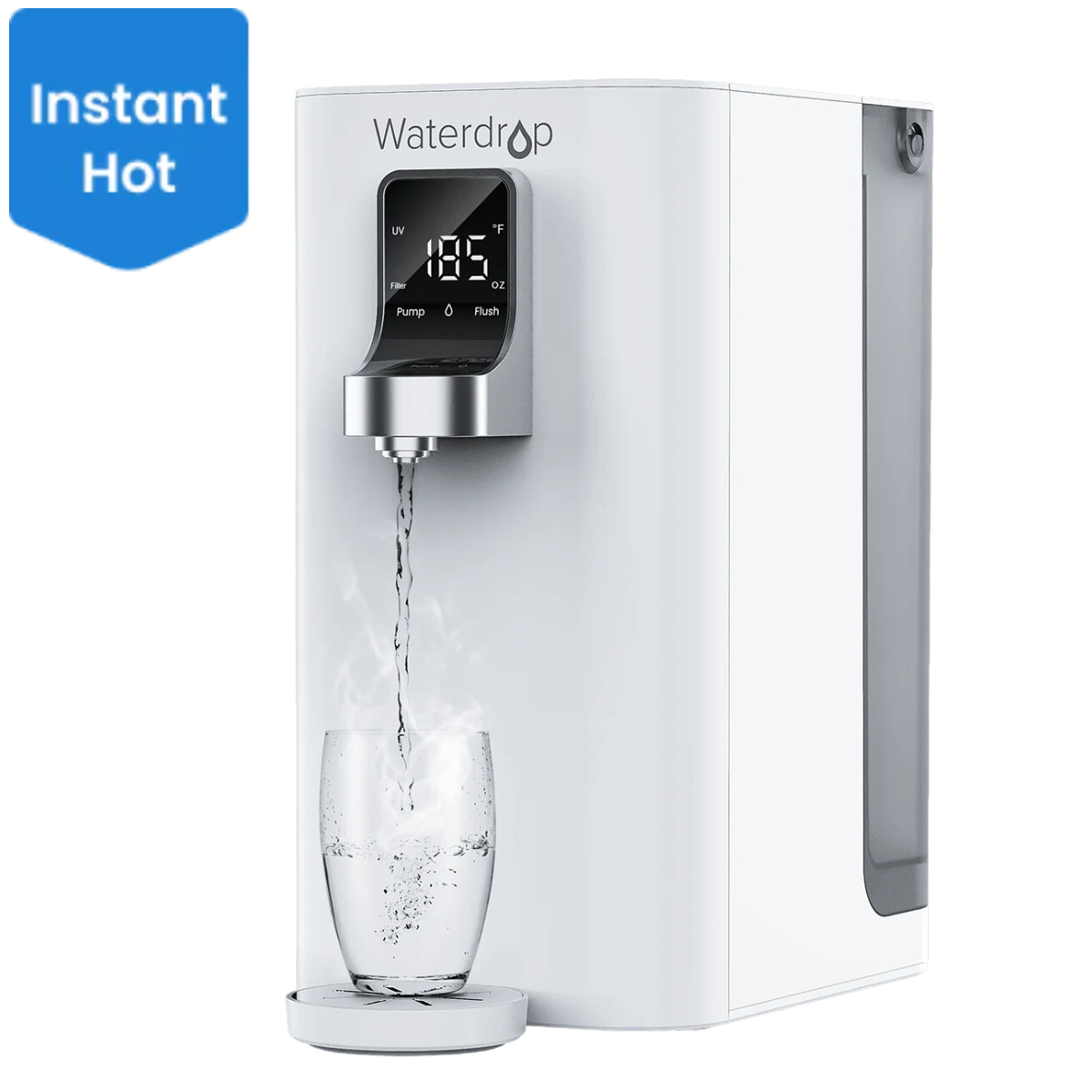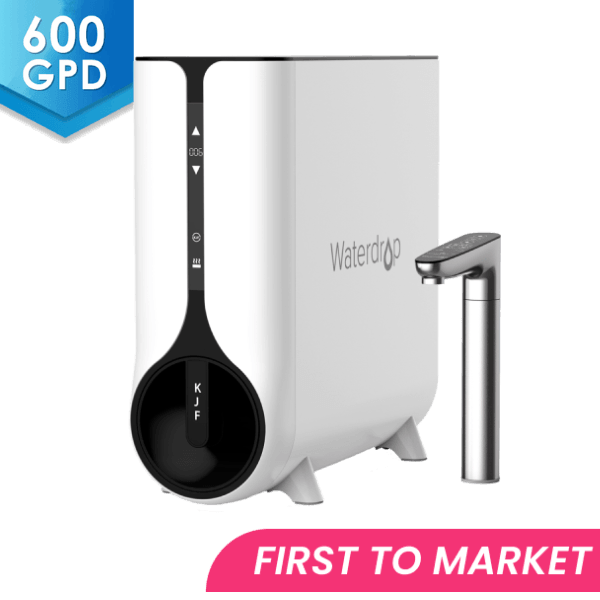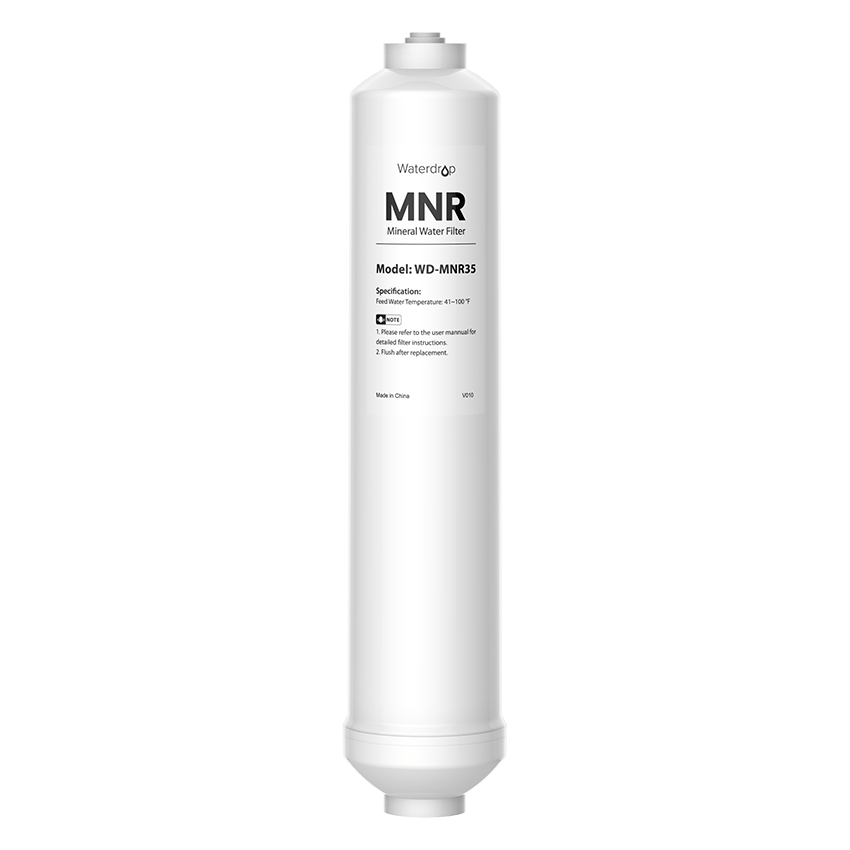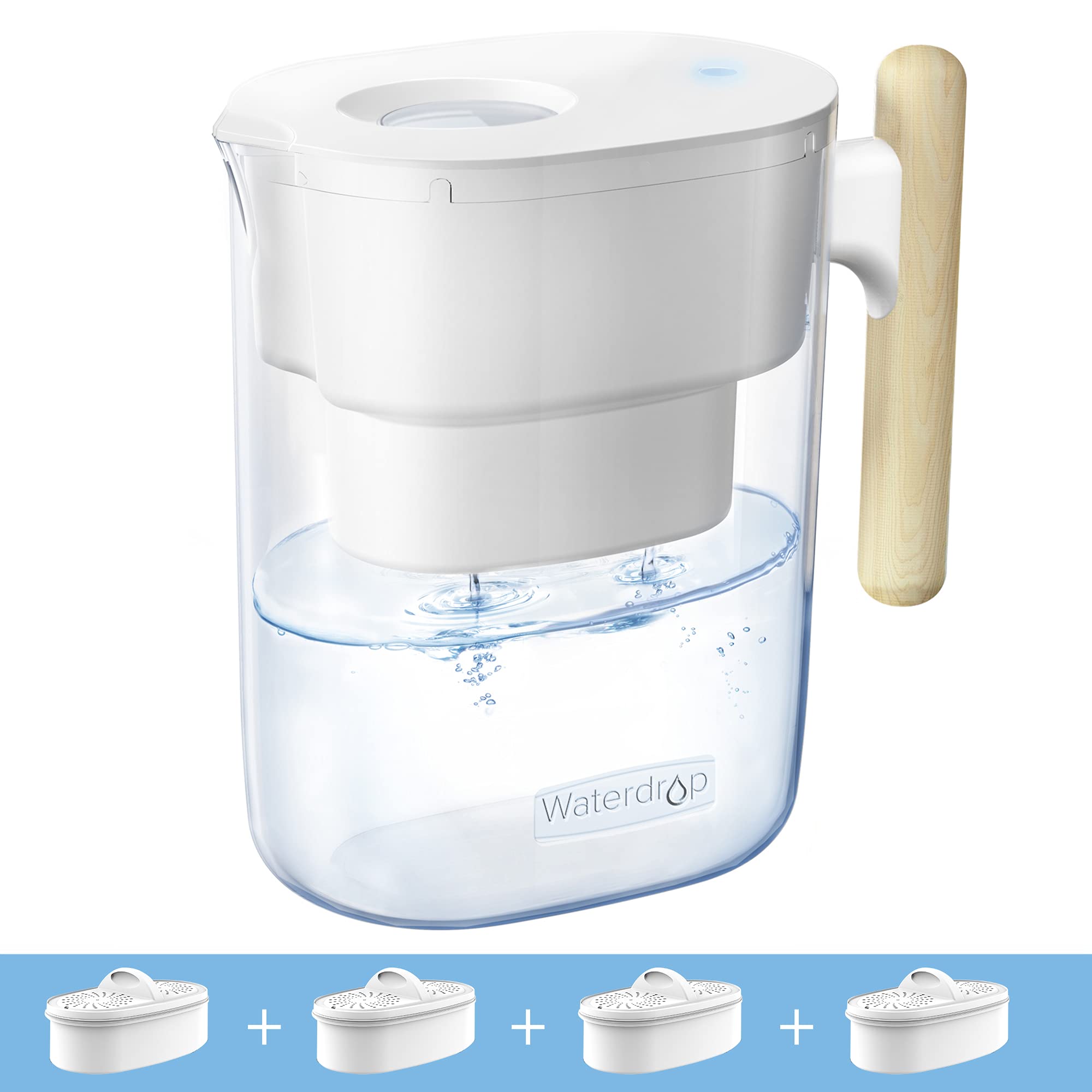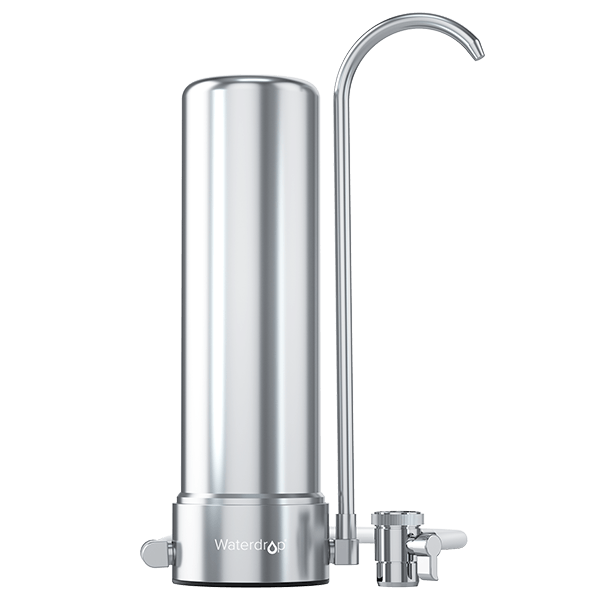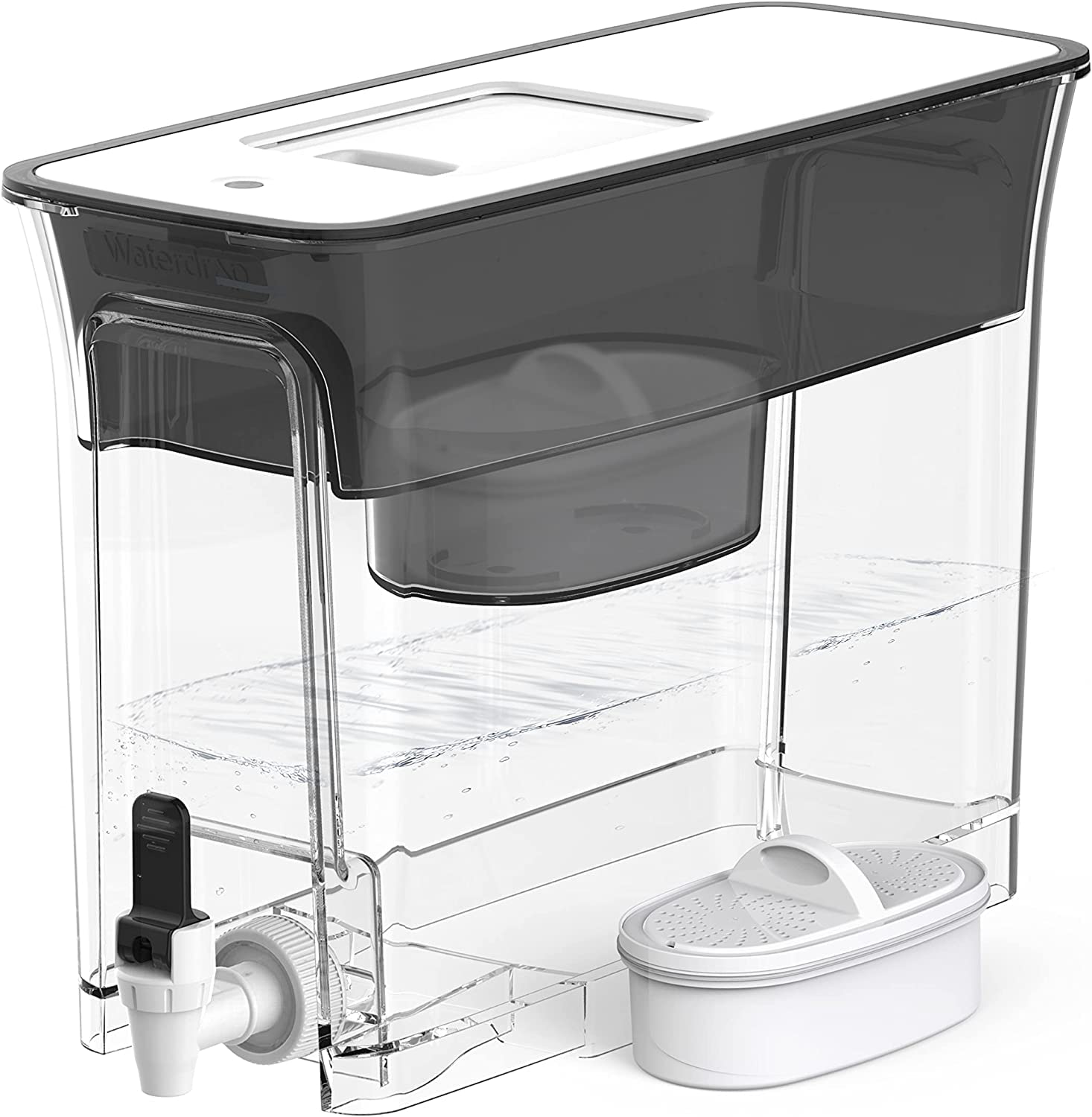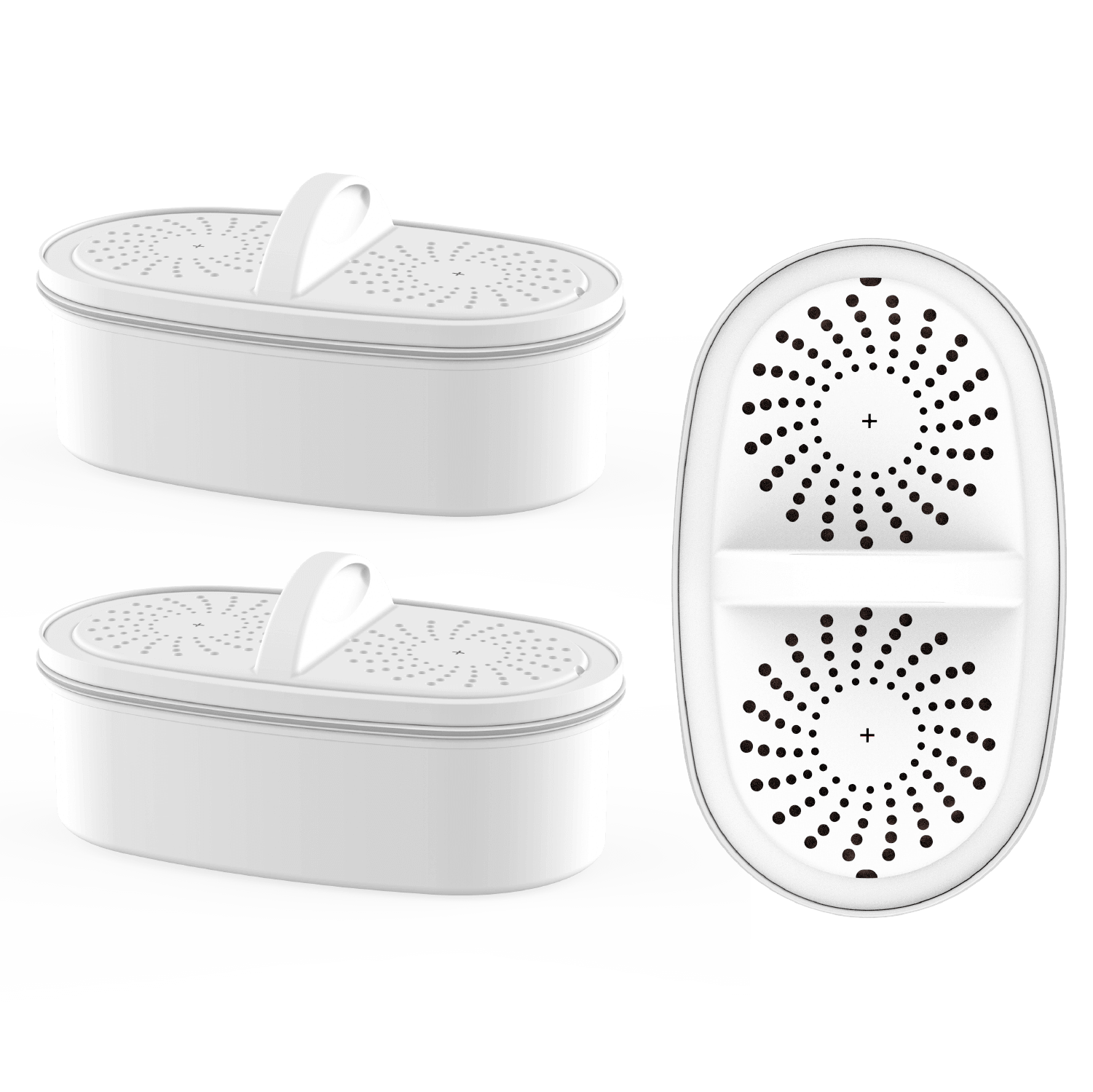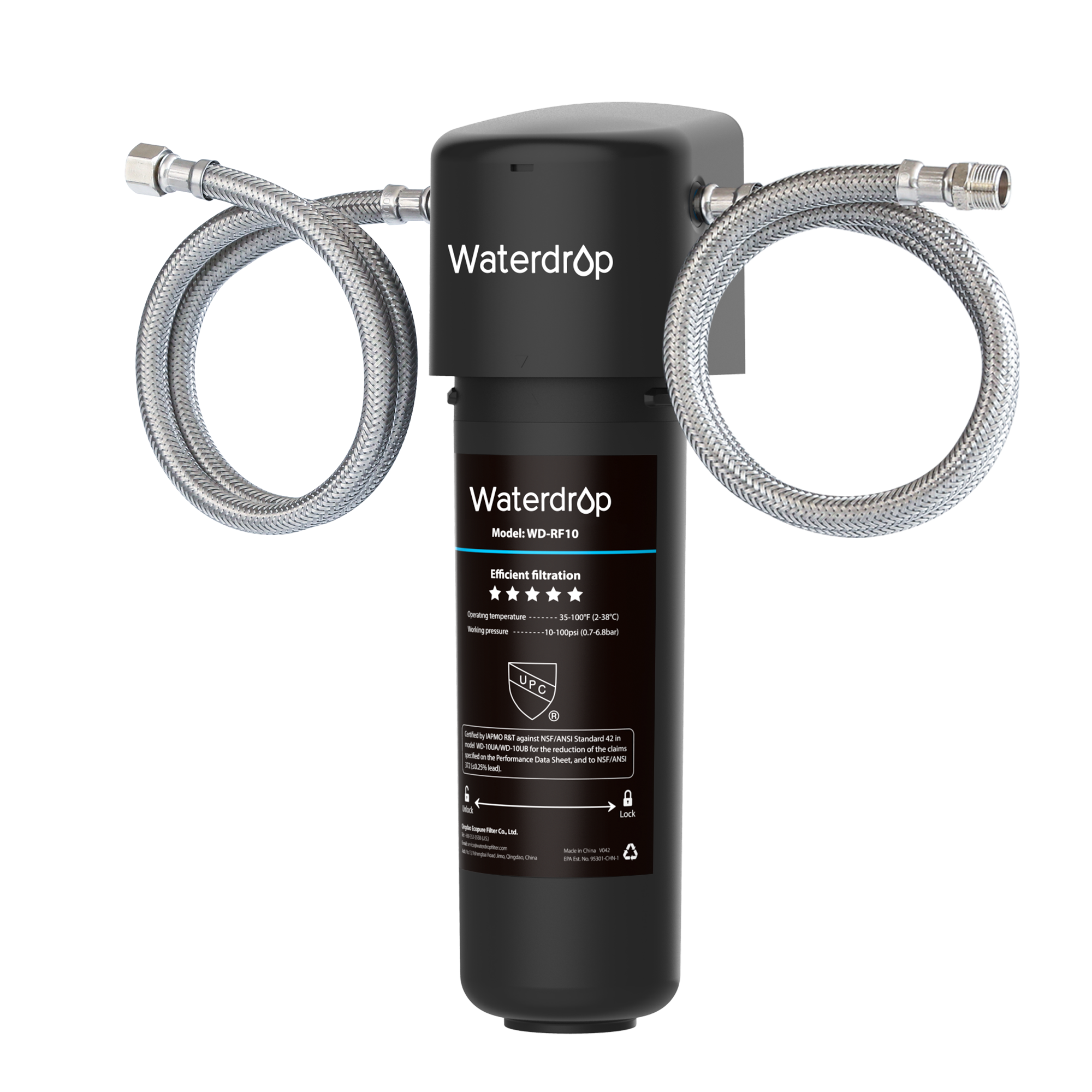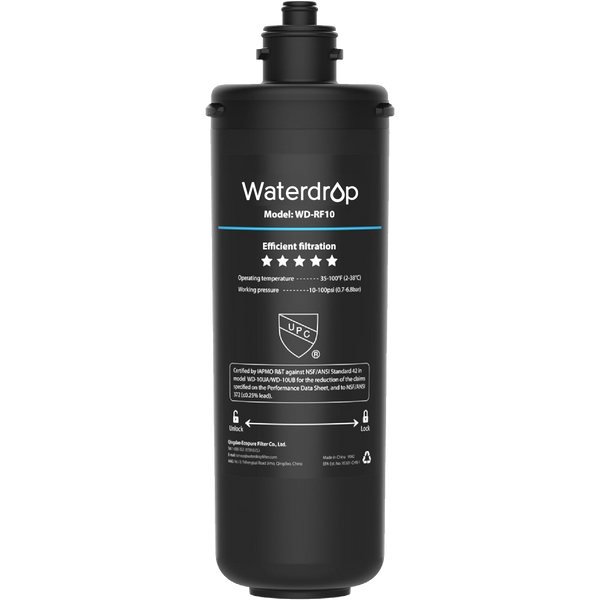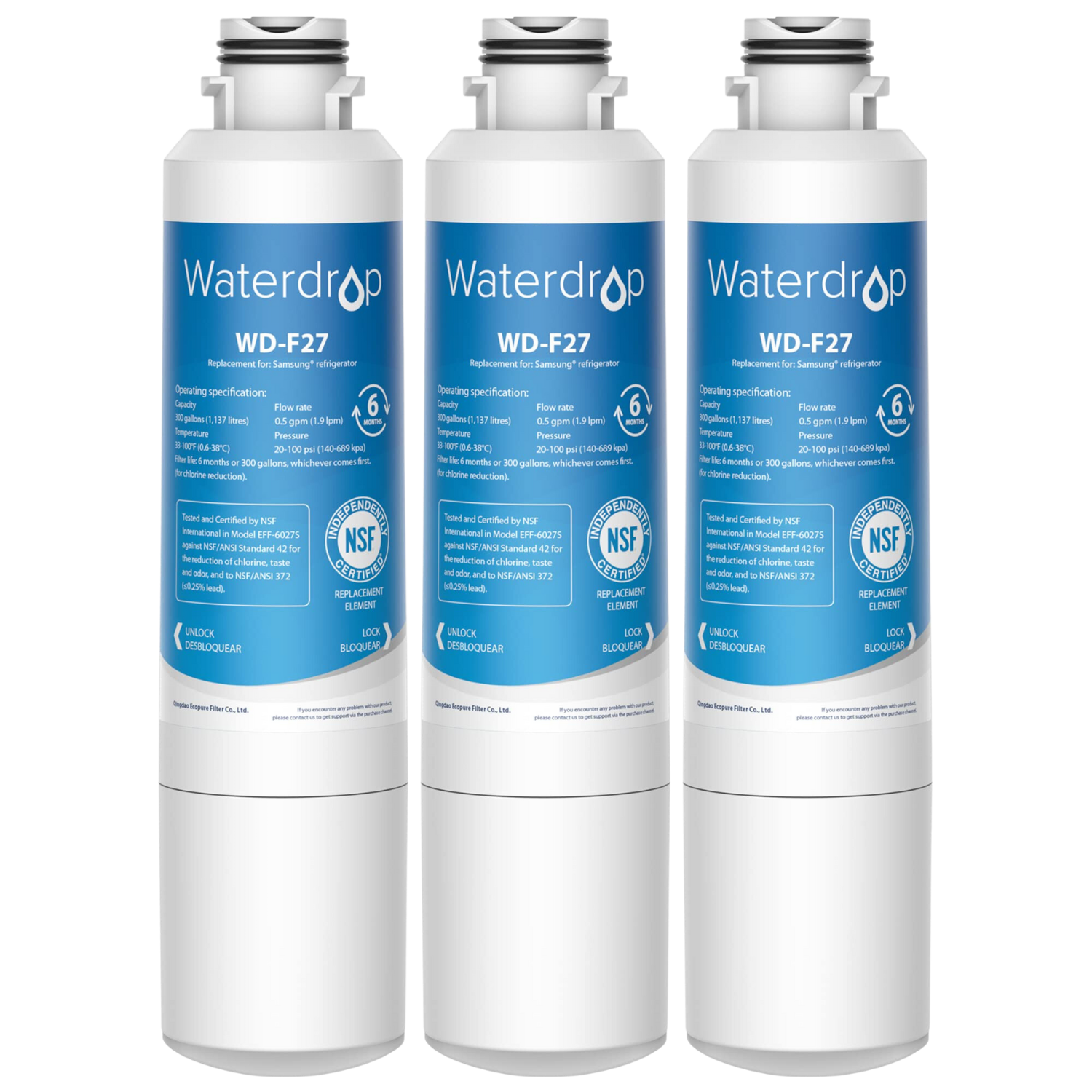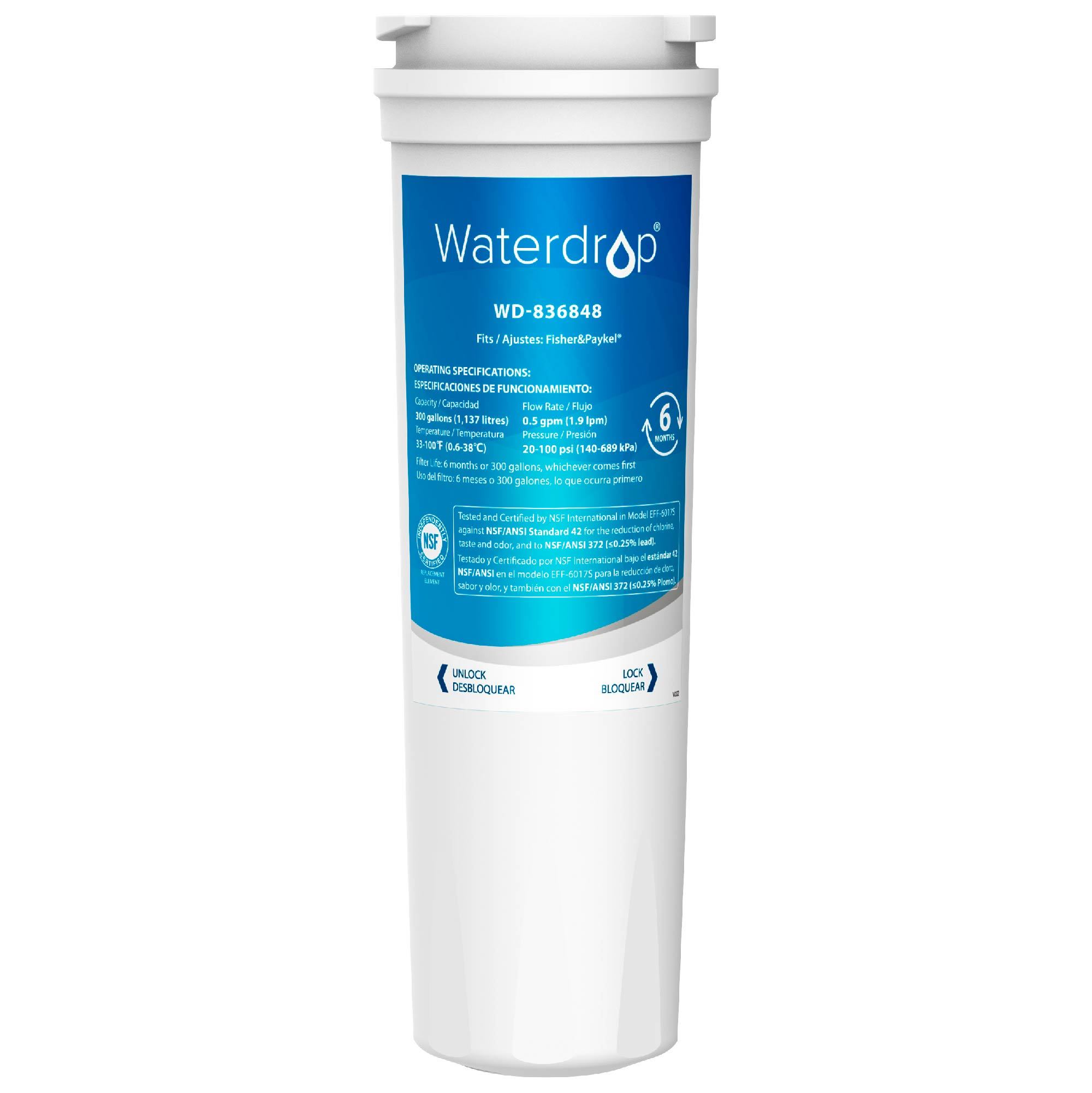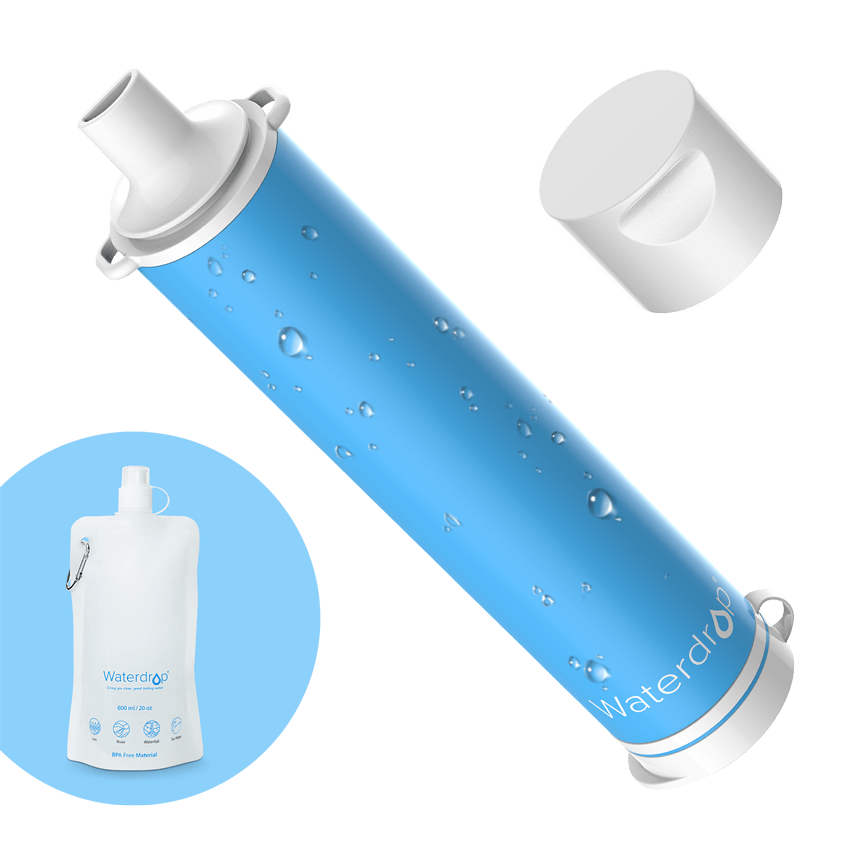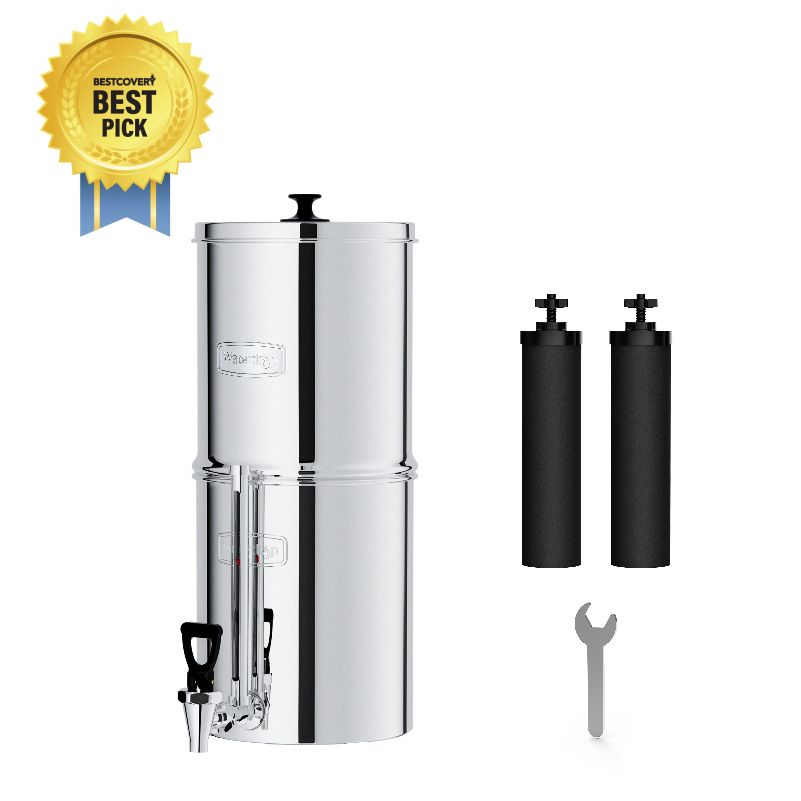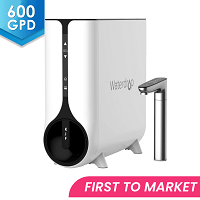Beat Plastic Pollution with Waterdrop—A Call for Stopping Drinking Bottled Water
by Dr. Jonathan Doyle - Updated June 07, 2023
Plastics have found a wide range of applications in our everyday lives. One of these applications is using
plastic to produce plastic bottled water. Official numbers put Americans’ annual
water bottle purchase at 50
billion annually, and a million plastic water bottle units are sold almost every minute worldwide.
One thing is clear from these numbers—Americans consume more bottled water than beer or milk every year. Another
pointer, albeit more problematic, from these numbers is the adverse effects of this consumption on the
environment. For example, Americans discard about 2.5 million units of plastic bottles every hour. Most of these
bottles end up in our landfills, with over 2 million tons of discarded water bottles in landfills across the
United States.
Each plastic water bottle requires about a thousand years to decompose properly. However, the decomposition
process is not without problems—it comes with releasing harmful chemicals into the environment. These chemicals
cause many health problems, including cancer and defects associated with reproductive organs and processes.
Why Are Plastic Bottles Unsafe?
Despite its convenience and accessibility, adopting bottled water comes with problems, especially in production.
For example, plastic water bottles are made from polyethylene
terephthalate (PET), a petroleum product. Research
has established PET as a potential hormonal systems disruptor. They also contain phthalates and DHA, which can
gradually seep into the water, especially when the temperatures get high or the water is stored for longer
periods.
In the case of plastic bottles made of recycled or low-quality plastic, they may release microplastics into the
water. These tiny particles of plastic are less than 5 millimeters in size and can be ingested
unknowingly
alongside the water in the plastic bottles or by inhaling airborne plastic particles. In addition, multiple
studies have found evidence of microplastics in the human body, especially in the gastrointestinal tract and
human tissues like the lungs and liver.
Additionally, PET requires a lot of fossil fuel to manufacture and transport PET. It is even more worrisome to
realize that making one water bottle requires 3x of the water needed to fill it up. The process also leads to
the production of millions of tons of CO2—a major contributory factor to climate change.
What Is The World Doing About Plastic Pollution?
According to the United Nations, the world can achieve an 80% reduction in plastic pollution by 2040, provided
governments and companies develop policy and market shifts leveraging existing technologies. To actualize this,
it launched a #BeatPlasticPollution campaign as part of the UN Environmental Programme. The
campaign aims to
discourage the use of refillable water bottles and plastic cutlery while encouraging the use of personalized
coffee cups and shopping bags.

*Sculpture by Von Wong
*Photo by Isabel marques Silva
*Photo by Isabel marques Silva
What Can You Do About Plastic Pollution?
Reducing plastic pollution is a collective effort. More than what government organizations like the United
Nations are doing, we must also take decisive actions as individuals to make a positive impact.
Use Reusable Bags and Water Bottles.
Bringing your own reusable bags when shopping eliminates the need for single-use plastic bags every time. In
addition, having a reusable water bottle on you always means you do not have to buy single-use plastic water
bottles. Such reusable bottles are made of glass, stainless steel, or other safe materials, thus minimizing
plastic waste. The same goes for plastic straws, utensils, and containers—they can all be replaced with reusable
alternatives that are more environmentally friendly.
Reduce Your Bottled Water Consumption.
Considering bottled water is sold in single-use plastic bottles, cutting down on your bottled water consumption
automatically reduces plastic waste. This leads to a decrease in the demand for plastic bottles and a
corresponding drop in its production. It also means fewer plastic bottles end up in landfills, where they spend
hundreds of years to decompose. Actively reducing your reliance on bottled water also promotes the adoption of
sustainable alternative drinking water sources.
Use Alternative Sources of Drinking Water.
There are safer and more environmentally friendly water sources that can serve as viable alternatives to bottled
water. For example, you can use water pitchers with replaceable filters that offer a simple and
cost-effective
means to enjoy contaminant-free and great-tasting drinking water. These pitchers are designed to use activated
carbon and similar filtration media to effectively reduce impurities and chlorine in your tap water, giving you
a more enjoyable and safer drinking experience.
Another sustainable alternative to bottled water is reverse osmosis water filter systems. These systems provide
purified drinking water by subjecting your tap water to a thorough, multi-stage filtration process, including
reverse osmosis, to remove contaminants, impurities, bad taste, and foul odor. With these systems, you can enjoy
a consistent supply of purified water straight from your tap, eliminating your dependence on plastic and plastic
water bottles. In addition to the convenience, a RO water filtration system is an eco-friendly and
cost-effective choice.
You can also consider ultraviolet (UV) filters, activated carbon filters, and water purifiers. All of these are
designed to reduce impurities and potentially harmful substances in your water and ensure it is safe to drink.
Support Plastic-Free Initiatives.
Like the #BeatPlasticPollution campaign, you will find tons of ongoing plastic-free
initiatives and movements you can support to reduce plastic waste. For example, most communities and businesses
are implementing refill and reuse programs, while several states and cities have implemented plastic bag bans or
fees to discourage their use. You can also join the beach and river cleanup efforts in your local area as a
volunteer to help remove plastic waste from natural environments.
Waterdrop Supports the #BeatPlasticPollution Campaign
At Waterdrop, we recognize how crucial the environment is to the well-being of humans and animals. We
incorporate the concept of sustainability in manufacturing and packaging process, including our under
sink
filters, countertop filters, refrigerator filters, outdoor filters, and whole-house filers. More than ensuring
that drinking water is not a luxury, the Waterdrop brand is committed to helping you embrace a plastic-free
planet by saving more and wasting less.


